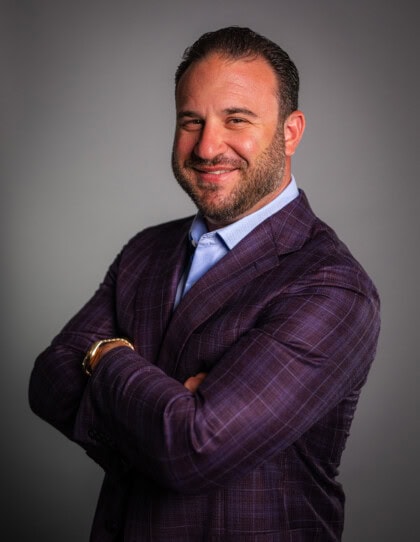Few situations trigger a parent's protective instincts more powerfully than learning their teenager is being questioned by police, and the immediate questions that come to mind are likely, "Can they do this without me there?" and "What rights does my child have?"
The reality is more complex than many parents realize. Understanding these nuances can mean the difference between protecting your child's future and unknowingly allowing rights violations. Keep reading to learn about the legal framework governing juvenile interrogations and the specific circumstances when police can question your teen without your presence.

The Legal Framework for Questioning Minors
Juvenile law operates under a fundamentally different philosophy than adult criminal law, recognizing that minors require special protections due to their developmental stage and vulnerability. While teenagers possess the same constitutional rights as adults, the application of these rights involves additional layers of complexity that create both opportunities and challenges for protection. Understanding this framework is the first step in advocating effectively for your child.
Constitutional Rights of Minors During Police Encounters
Juveniles have the same Fifth Amendment privilege against self-incrimination as adults, requiring Miranda warnings during custodial interrogation. However, over 1.5 million juvenile offenders are arrested annually in the United States and are routinely Mirandized, but warnings vary in comprehensibility. Research indicates that juveniles disproportionately make false confessions due to cognitive differences and vulnerability to coercive tactics, highlighting the importance of Miranda protections.
The Sixth Amendment right to counsel applies equally to minors, but the practical application differs significantly from adult cases. Courts recognize that juveniles may not fully understand the implications of proceeding without legal representation, which has led some jurisdictions to implement additional safeguards. Young people often lack the experience and judgment to make informed decisions about waiving their right to counsel, making this protection particularly important.
Fourth Amendment protections against unreasonable searches and seizures also apply to minors during questioning scenarios, though the context may affect how these rights are interpreted. While a teenager's constitutional rights are not diminished by age, the way these protections are implemented must account for developmental factors. The key difference lies not in the existence of these rights but in how they must be communicated and protected when dealing with someone whose cognitive development is still ongoing.
State-Specific Laws Governing Juvenile Interrogations
Individual states have recognized the need for additional protections beyond federal constitutional requirements, creating a patchwork of laws that vary significantly across jurisdictions. Florida law mandates that law enforcement must make a reasonable effort to notify the parents of a minor who is in custody and must provide Miranda warnings in age-appropriate language. This requirement acknowledges that standard Miranda warnings may not be sufficient for younger individuals to truly understand their rights.
Some states have gone further by requiring parental or attorney presence during interrogations of minors. North Carolina law requires that for juveniles under age 16, any statements made during custodial interrogation are inadmissible in court unless a parent, guardian, custodian, or attorney was present during questioning. California has similarly implemented requirements that minors aged 17 or younger must consult with legal counsel before a custodial interrogation and prior to waiving any Miranda rights.
These varying state protections mean that your child's rights may be significantly different depending on where the questioning occurs.
Circumstances When Police Can Question Teens Without Parents
Despite common misconceptions about absolute parental rights, there are several legally recognized scenarios where law enforcement can question your teenager without your presence or immediate notification. Understanding these exceptions is not meant to discourage you from advocating for your child, but rather to prepare you for the reality of how these situations unfold and when you need to take immediate action.
School-Based Police Questioning
School environments create unique circumstances where traditional parental notification rules may not apply in the same way. Schools serve as a quasi-parental authority during school hours, and school administrators can sometimes consent to questioning in place of parents, particularly when the investigation relates to school safety or on-campus incidents. However, this authority has limits and cannot override fundamental constitutional protections.
The role of School Resource Officers (SROs) adds another layer of complexity to these situations. It's important to understand the difference between administrative school discipline matters and criminal investigations that require different procedural protections. In school settings, when police question students, the situation is more likely to be considered custodial because students generally do not feel they can leave, requiring Miranda warnings.
This recognition acknowledges that the school environment itself may be inherently coercive.
Minor in Custody vs. Non-Custodial Questioning
The distinction between custodial and non-custodial questioning determines what procedural protections must be in place and significantly affects your child's rights during police encounters. Custodial interrogation occurs when a person is in police custody and subject to interrogation, triggering the requirement for Miranda warnings. For minors, this determination considers not just physical restraint but also whether a reasonable juvenile would feel free to leave.
Non-custodial questioning scenarios, such as voluntary interviews or field stops, operate under different rules where Miranda warnings are not required if the minor is not in custody. These situations might include routine traffic stops, consensual conversations with police, or interviews conducted in non-threatening environments where the teenager is free to leave. However, the line between custodial and non-custodial questioning can be blurry, particularly with minors who may not understand their freedom to terminate the interaction.
Understanding these distinctions is important because they determine what procedural protections must be in place and affect the admissibility of any statements your child makes. Observational studies of actual juvenile interrogations indicate that 90% of youth waive their Miranda rights and agree to speak with police without an attorney, highlighting the importance of preparation and education about these different scenarios.
Emergency and Exigent Circumstances
Emergency circumstances represent one of the most significant exceptions to parental notification requirements, typically arising when law enforcement faces imminent public safety threats or time-sensitive investigations. Courts have consistently recognized that certain situations require immediate action that cannot wait for parental notification or presence. These circumstances are defined by urgency and the potential for harm if questioning is delayed.
Specific examples include active shooter situations where a teen may have witnessed important information, ongoing crimes where immediate intervention could prevent further harm, or cases where delay could result in destruction of evidence or flight of suspects. Drug investigations often fall into this category when police believe that waiting for parental notification could compromise their ability to prevent distribution or identify other participants.
However, these situations must involve genuine emergencies, not merely convenient circumstances for law enforcement. Even in emergency situations, the fundamental constitutional rights of your teenager remain intact. Emergency questioning should still respect the minor's right to remain silent and request an attorney, and any statements obtained through coercive means remain inadmissible regardless of the circumstances.
Protecting Your Teen's Rights During Police Encounters
Preparation and education serve as your strongest defenses against rights violations, far more effective than trying to remedy problems after they occur. By taking proactive steps to educate your teenager and establishing clear protocols for police encounters, you can significantly improve the outcome of any potential interaction with law enforcement.
Educating Your Teen About Their Rights
Teaching your teenager about their right to remain silent is perhaps the most important protection you can provide. This education should include how to respectfully invoke this right by clearly stating, "I am choosing to remain silent and would like to speak with my parents and an attorney." Research suggests that juveniles inadequately comprehend Miranda warnings to a degree that could compromise the validity of their waiver, making education important.
Your teen must understand their right to request an attorney and the importance of asking for parental notification immediately upon any police contact. Role-playing these scenarios can help your teenager practice the appropriate responses and build confidence in asserting their rights.
Teaching appropriate behavior during police encounters requires balancing respect for law enforcement with protection of legal rights. Your teenager should understand the importance of remaining calm, keeping their hands visible, and complying with lawful orders while still protecting their constitutional rights. This means they can and should respectfully decline to answer questions beyond providing basic identification information, and they should never agree to searches without a warrant.
Immediate Steps When Police Contact Your Child
When you learn that police are questioning your child, immediately demand to be present and clearly state that you are invoking your child's right to remain silent and right to counsel. Document everything you can about the circumstances, including the time, location, officers involved, and the reason given for the questioning. Request that all questioning cease until you arrive and legal counsel is present.
Avoid coaching your child over the phone or attempting to interfere with lawful police procedures, as this could complicate the situation or even result in charges against you. Instead, focus on clearly communicating your child's invocation of rights and your demand for immediate access. Do not allow your child to sign any documents or make any statements until you and an attorney are present, regardless of any assurances from law enforcement about the routine nature of the questioning.
Working with Legal Counsel
Contact an attorney experienced in juvenile criminal defense immediately upon learning of police questioning, regardless of whether charges have been filed. Have ready the basic information about your child's age, the nature of the alleged incident, which law enforcement agency is involved, and where the questioning is taking place. Early legal intervention can prevent your child from making statements that could be used against them later.
Criminal defense attorneys can intervene in ongoing questioning even when parents cannot immediately be present, asserting the minor's rights and ensuring that proper procedures are followed. Attorneys experienced in juvenile cases understand the unique vulnerabilities of young people and can provide protections that may not be available to adult defendants. They can also begin building a defense strategy immediately, preserving evidence and identifying potential procedural violations.
Common Misconceptions About Parental Rights
Many parents operate under misconceptions about their absolute right to be present during police questioning of their children, which can lead to ineffective advocacy and missed opportunities to protect their teenager's rights. Understanding the reality of these limitations allows you to focus your efforts on the protections that actually exist and the steps that can make a real difference in your child's case.
The Myth of Absolute Parental Presence Rights
Unlike attorney-client privilege, there is no absolute right to parental presence during police questioning in most jurisdictions. While parental involvement is generally encouraged and often required by state law, this doesn't create an absolute right that cannot be overcome by other circumstances. Law enforcement agencies understand these limitations and may use them to their advantage during questioning.
While many states have parental notification requirements, these don't always translate to a right to be physically present during questioning, especially in emergency circumstances or when teens are questioned in school settings. The distinction between notification and presence is important, as notification may simply mean that you are informed after the fact rather than being given the opportunity to be present during questioning.
Understanding Waiver of Rights by Minors
The law generally requires higher standards for valid rights waivers by minors compared to adults, recognizing that young people may not fully understand the consequences of their decisions. However, these higher standards don't prevent minors from waiving their rights, and many do so without fully understanding the implications. Courts evaluate whether a minor's waiver of Miranda rights was voluntary, knowing, and intelligent by considering factors including age, intelligence, emotional state, and any coercive or deceptive tactics by law enforcement.
Some jurisdictions have implemented additional protections that make rights waivers more difficult for minors. North Carolina, for example, has established that juveniles under age 16 cannot waive their right to have a parent, guardian, or attorney present during custodial interrogation, setting a higher standard than for adults. However, these protections are not universal, and many states still allow minors to waive their rights under the same standards applied to adults.
Parents should teach their children never to waive rights without parental consultation and legal advice, regardless of what law enforcement officers may say about the routine nature of the questioning or the benefits of cooperation. Even when teens understand their rights intellectually, the stress and intimidation of police encounters can lead to poor decision-making that has lasting consequences.
Red Flags and Rights Violations
While most law enforcement officers follow proper procedures during juvenile interrogations, parents should be aware of potential rights violations and know how to recognize when their child's legal protections have been compromised. Identifying these violations early can be important for protecting your child's case and holding law enforcement accountable for improper conduct.
Identifying Improper Police Questioning Techniques
Coercive interrogation tactics such as threats, promises of leniency, or exploitation of a child's emotional state are particularly problematic with minors and may lead to false confessions. Some states have recognized this vulnerability by passing laws establishing a presumption that confessions by children are inadmissible if made as a result of custodial interrogation in which law enforcement knowingly used deception. These tactics are especially concerning with juveniles because of their developmental vulnerabilities and tendency to trust authority figures.
Violations of notification requirements and failure to provide appropriate Miranda warnings tailored to the minor's age and comprehension level represent another category of concerning practices. When officers fail to make reasonable efforts to contact parents or provide Miranda warnings in a language appropriate for the child's developmental level, they may be violating both constitutional requirements and state-specific protections. Documentation of these failures can be important for challenging any statements obtained during questioning.
Perhaps most concerning is when police continue questioning after a minor has invoked their right to remain silent or requested an attorney or parent. In actual juvenile interrogations, when youth invoke their rights, some interrogators attempt to persuade them to continue the conversation rather than terminating questioning. This practice violates fundamental constitutional protections and can result in the suppression of any statements obtained after the invocation of rights.
Documenting Potential Violations
When you suspect that your child's rights have been violated during police questioning, immediately begin documenting all relevant information, including times, locations, officers involved, and any witnesses present. Obtain names and badge numbers of all law enforcement personnel involved, and request information about any recording devices that may have captured the interaction. This documentation can be important for both immediate advocacy and potential legal challenges.
File complaints with appropriate oversight bodies while preserving evidence for potential legal challenges, but understand that these administrative processes are separate from the criminal defense of your child. Obtaining any available recordings of the questioning should be a priority, as these can provide objective evidence of what occurred and whether proper procedures were followed. Work with your attorney to ensure that all evidence is properly preserved and that your documentation efforts don't inadvertently compromise your child's defense.
When to Seek Legal Help
Early legal intervention in juvenile cases can make the difference between a minor mistake with minimal consequences and a serious criminal charge that affects your child's future opportunities. The decisions made during initial police encounters can significantly impact the outcome of potential charges, making it important to understand when immediate legal help is necessary.
Immediate Legal Intervention Scenarios
Contact criminal defense counsel immediately in high-stakes situations such as serious felony allegations, cases involving potential adult charges, or situations where your child has made statements without proper legal protections. Early involvement of a criminal defense attorney in juvenile cases is important because decisions made during initial police encounters can significantly impact the outcome of potential charges. Don't wait to see if charges will be filed, as the damage may already be done by the time formal charges are brought.
Even in seemingly minor cases, early attorney involvement can prevent escalation and protect future opportunities that might be jeopardized by criminal charges. Attorneys can often negotiate with prosecutors to avoid formal charges or secure diversion programs that keep cases out of the court system entirely. The cost of early legal intervention is minimal compared to the potential long-term consequences of criminal charges on your child's education, employment, and future opportunities.
Long-term Legal Considerations
Understanding how statements made during improper questioning can potentially be suppressed in court highlights the importance of challenging rights violations even when they seem minor. Successful suppression of evidence can result in dismissal of charges or significantly weaken the prosecution's case. Your attorney can evaluate whether proper procedures were followed and identify grounds for challenging any evidence obtained through rights violations.
The broader implications for your child's future extend far beyond the immediate criminal case, affecting education records, employment prospects, and the potential for sealing or expunging juvenile records. Many colleges and employers conduct background checks that can reveal juvenile records, making it important to resolve these cases in a way that minimizes long-term consequences. Working with experienced juvenile defense counsel ensures that these future implications are considered in developing your child's defense strategy.
Speak To An Attorney About Protecting Your Child's Rights
While police can question minors without parental presence in certain circumstances, parents and teens are not powerless in these situations. Understanding your child's constitutional rights, the limitations of parental authority, and the steps you can take to protect your teenager can make a significant difference in the outcome of any police encounter.
If your teenager has been questioned by police or is facing criminal charges, don't wait to see how the situation develops. Our experienced criminal defense attorneys understand the unique challenges facing juveniles in the criminal justice system and are committed to protecting young people's rights and futures throughout Florida.
Call us 24/7 at 888-626-1108 for a free consultation to discuss your child's case, or click here to schedule your free case review online.


